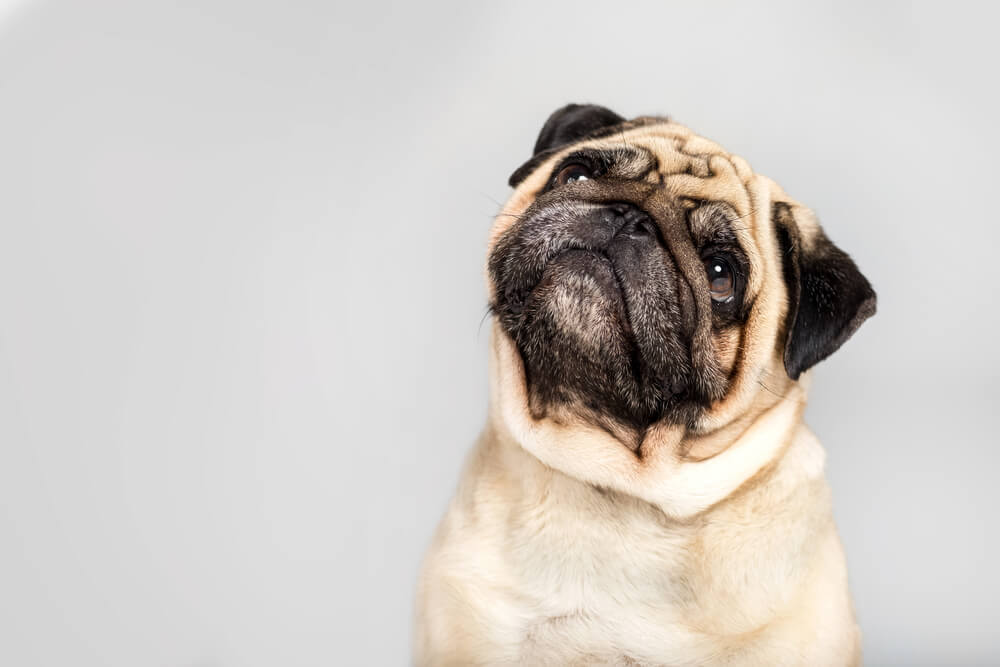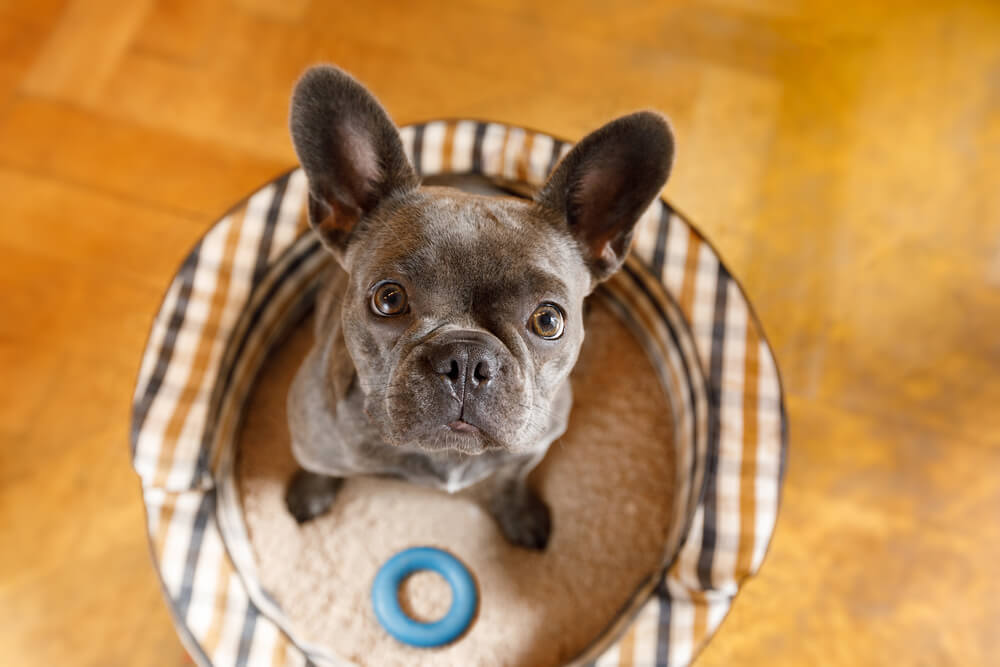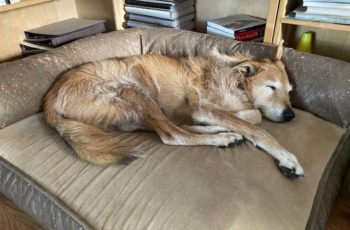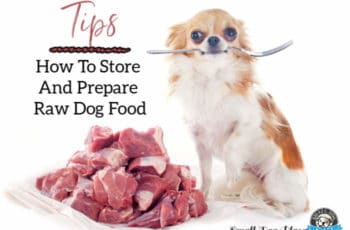Hiccups are annoying, to say the least. They come at random times, often for no apparent reason, can go on for far longer than we’d like and getting rid of them has been the subject of seemingly endless discussion and all kinds of strange old wives tales for centuries (put a key down the back of your shirt? Really??) But that’s all human stuff. Can dogs get hiccups?
In short, as many pet parents already know, yes, dogs can, and do, get hiccups. And their appearance can seem as random as it is for humans.
But are hiccups in dogs a signal that something is wrong? How can you stop dog hiccups once they start? Is there anything you can do to prevent them in hiccup prone pups? These, and other related questions, are what we are going to take a deeper dive into now.

What are Hiccups?
Hiccups are spontaneous contractions of the diaphragm, the muscle that connects your chest and abdomen and controls your breathing. Each contraction is accompanied by an abrupt closing of your vocal cords, resulting in the “hic” sound that is so familiar.
What Causes Hiccups in Puppies and Dogs?
As is the case for all mammals, dogs and humans included, hiccups can have many causes.
The ‘science’ behind the causes of them is somewhat murky, and even those who have studied them for many years are not exactly sure why mammals developed this trait. Some scientists have suggested that they may even be an evolutionary throwback to amphibians – which all mammals, humans and dogs included evolved from – and a shared trait in the brainstem that controls the gills (which humans and dogs obviously no longer have.)
Whatever the reason why hiccups exist, what causes them is more clear-cut. Here are some of the most common reasons why dogs and puppies hiccup:
- Eating too fast
- Drinking too fast
- Being too cold
- Being too hot
Are Hiccups in Dogs a Cause for Concern?
Just like humans, dogs rarely have the hiccups for more than a few minutes at a time, and most of the time they go away as quickly as they arrived.
Should they be constant for more than 36-48 hours you should consult your vet, as constant hiccuping that does not let up can, in rare cases, damage the diaphragm itself and lead to breathing difficulties. This is, as we mentioned, rare, but worth talking to a vet about, especially in puppies, whose bodies are still developing.
How To Get Rid of Hiccups in Dogs
Of all the ailments that humans suffer, hiccups are one that, as we touched on before, there are a slew of myths and misconceptions around when it comes to getting rid of hiccups. You’ve probably tried lots of them yourself at some point.
You can’t put a cold key down a dog’s back (why do people think that works anyway?) and you can’t tell him to hold his breath (which also rarely works in humans anyway.) You certainly should not try to deliberately scare him, as that is, to be frank, mean, and you have no idea how badly he might react.
Another strange ‘hiccup remedy’ that is still making the rounds is the idea of holding the tongue. Don’t try this on your pup, either. Not only is this not an effective hiccup remedy, it will frighten them, possibly hurt quite a lot and lead to them nipping at you (and could you really blame them if they did?)
Most hiccups in dogs WILL go away on their own in a short time.
Puppies are more prone to them than older dogs, so even if they are a regular occurrence when your pup is young, the chances are that he will outgrow them, just like the zoomies and a tendency to chew everything in sight. And at worst they’ll annoy him, and maybe make you laugh: hiccuping puppies are funny. If they do not, then make a call to your vet to ask for their advice.
How to Prevent Hiccups in Dogs
Some hiccuping, especially in excitable puppies, may be inevitable. However, there are some things you can try that may be able to prevent hiccups caused by some canine behaviors and outside factors like temperature.
1. Prevent Hiccups in Fast Eating Dogs
Eating too fast is a common cause of hiccups in dogs. But hiccups are not the only problem that eating too fast can cause. Eating too fast can cause bloat, which is far more serious than hiccups.
At one time it was thought that elevating a dog’s feeding bowl may help prevent bloat (and hiccups) but research has shown that’s not the case. Slowing eating by feeding smaller, more frequent meals rather than one or two large ones has been shown to be effective, however, as has making use of a ‘puzzle bowl’ that is designed to help slow fast eating dogs down.
Whippy Healthy Slow Feeder Bowl

When it comes to drinking too fast, that is harder to control, although some pet parents have found that puzzle bowls help here as well. Given how very important it is that pups remain properly hydrated, however, some things that ‘the Internet’ recommends – like placing large objects in front of a dog’s drinking bowl to make it harder for them to get to – should not be attempted.
As the occasional bout of hiccups is likely to be far less harmful than the effect of dehydration, should your pup decide that trying to get to water is too hard and something they won’t bother with. So you can try simple measures like a puzzle bowl, and they are unlikely to do any harm, even if they don’t help with hiccups much, but do not make it difficult for your pup to get the water he needs (especially as, just like humans, drinking water can help hiccups go away!).
2. Prevent Hiccups Caused by Temperature Changes
Another cause of hiccups, extreme temperatures, especially cold temperatures, may be helped by trying to ensure hiccup prone pups are not exposed to temperature extremes. In hot weather, it is best to ensure dogs do not overheat in general, as that can lead to other health problems. Make sure they have a shaded spot to retreat to, and plenty of water on hand at all times.

Some dogs, primarily brachycephalic pups, like our French bulldog buddy above – those with short snouts – don’t do well in the heat at all, and should always have a cooled space to retreat to in the summer when they have had enough of the heat, something that is usually obvious because they will pant heavily, snort and yes, maybe even get hiccups.
Some pups are, as we mentioned, prone to getting hiccups in cold weather. In general, most dogs should not be bothered by cold temperatures until they drop below 45° F, after which point some cold-sensitive dogs may become uncomfortable.
Owners of small breed pups, dogs with short coats, and/or extremely young, old, or sick dogs should pay particular attention to their pets’ well-being when temperatures drop below 32° F. And to prevent hiccups you may want to limit the amount of time they spend in the cold, and consider investing in a warm pet jacket for them too.
Ruffwear Climate Changer

3. Preventing Stress-Related Hiccups in Dogs
Over excitement in puppies, one common cause of hiccups, is hard to change, or to temper, and may simply have to be something they grow out of.
Stress-related hiccups are something you may be able to help with. Petting a dog slowly when they have hiccups, even rubbing their belly, may be just what they need to calm them enough to regulate their breathing and stop the hiccups.
Helping a dog who tends to get stressed find some relief is a smart, and compassionate, move in general. There are many ways you can do this, and your vet can usually help you determine what is best for your unique pup, as they all have different sources of stress, ranging from separation anxiety to a distrust of certain environments and more.
Adaptil DAP Dog Appeasing Pheromone Electric Diffuser
This powerful device combines the power of aromatherapy and pheromones to help calm and soothe anxious pups in a safe, non-invasive way that can be rather delightful for humans as well.

Getting plenty of physical exercise often helps in almost every situation, as does having a quiet spot of their own to retreat to at will. Some pups also enjoy having a particular stuffed toy around, just like human kids do.
Final Thoughts on Dogs and Hiccups
Although they can be annoying for both human and dog, hiccups in dogs are normal and rarely a cause for concern. Just remember that if hiccups go on for a long time, or seem to occur very often, you should discuss your concerns with a vet and schedule a general health checkup to ensure that frequent hiccups are not a sign of anything else.
DISCLAIMER: If you are concerned about your pet, visit or call your veterinarian – he/she is your best resource to ensure the health and well-being of your dog. This information is for informational purposes only and is not meant as a substitute for the professional advice of, or diagnosis or treatment by, your veterinarian with respect to your pet.


